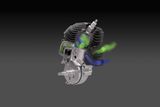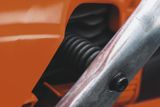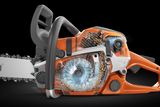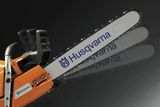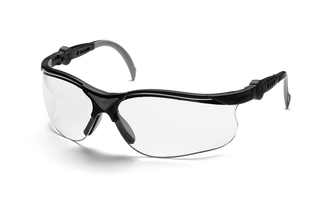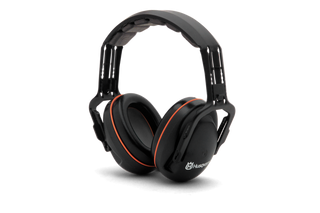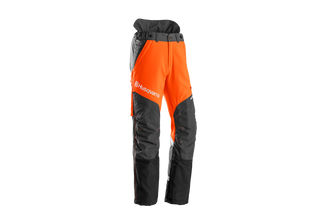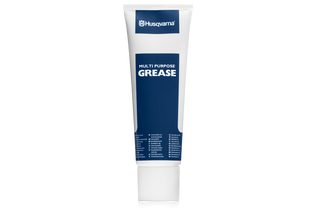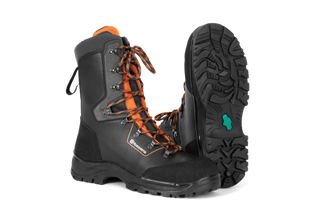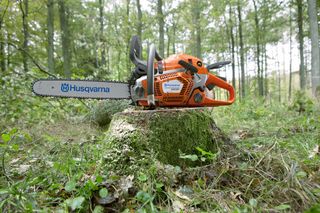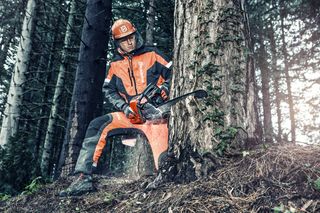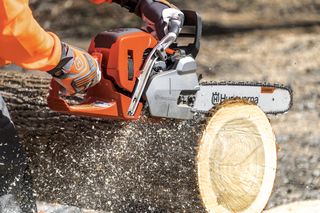1/2
38 cm³
Cylinder displacement
1.6 kW
Output shaft power1
16.8 m/s
Chain speed at max power
What's included
What's included
HUSQVARNA 135 Mark II - 967 86 18‑46
Included
- Nose typeSprocket nose
- SpikesMounted
- Chain typeS93G
- Bar length (inch)16 in
Easy-to-use and powerful chainsaw with quick start
Lightweight and easy to use – Husqvarna 135 Mark II is a chainsaw ideal for cutting tasks around the garden, such as cutting firewood and felling small trees. It has an X-Torq® engine that provides great power and torque thanks to highly efficient combustion. Easy to start and equipped with anti-vibration dampeners for sparing the user's arms and hands. Inertia chain brake for extra safety and the chain is easily adjusted using the side-mounted chain tensioner.
Features
Features
Specifications
Specifications
Compare specifications and features with similar Husqvarna products.
Compare16" 3/8 S93G SN Art no: 967 86 18‑46 | |
|---|---|
| Engine | 16" 3/8 S93G SN Art no: 967 86 18‑46 |
Chain speed at max power | 16.8 m/s |
Cylinder displacement | 38 cm³ |
Output shaft power1 | 1.6 kW |
| Equipment | |
Recommended bar length, min | 14 cm |
Pitch | 3/8" mini |
Recommended bar length, max | 40 cm |
Chain type | S93G |
Bar length | 40 cm |
Bar length (inch) | 16 in |
| Dimensions | |
Weight (excl. cutting equipment) | 4.68 kg |
| Sound and noise | |
Sound pressure level at operators ear | 102 dB(A) |
Sound power level, guaranteed (LWA) | 116 dB(A) |
| Vibration | |
Equivalent vibration level (ahv, eq) rear handle | 5.5 m/s² |
Equivalent vibration level (ahv, eq) front handle | 3.72 m/s² |
| Emission | |
Exhaust emissions (CO₂ EU V)2 | 804 g/kWh |
Reviews
(59)
Reviews
(59)
Services
Services
Owner support
Owner support
Manuals, handbooks, spare parts, guides, and related information for 135 Mark II can be found in the product support.
Product support for 135 Mark IIDisclaimer:
- 1Output shaft power: Net power rating as per ISO 7293, at specified RPM
- 2Exhaust emissions (CO₂ EU V): This CO2 measurement results from testing over a fixed test cycle under laboratory conditions a(n) (parent) engine representative of the engine type (engine family) and shall not imply or express any guarantee of the performance of a particular engine.




